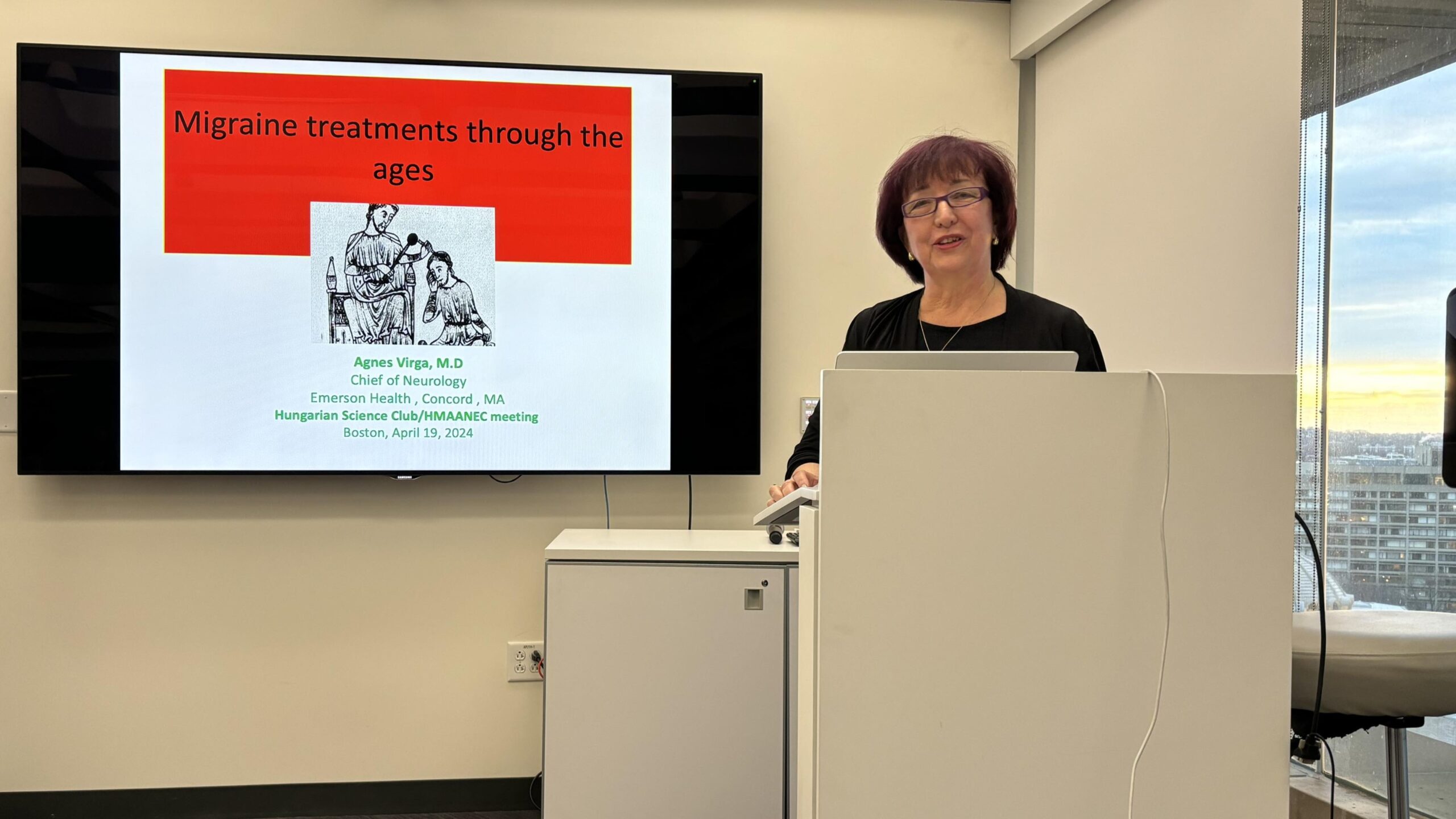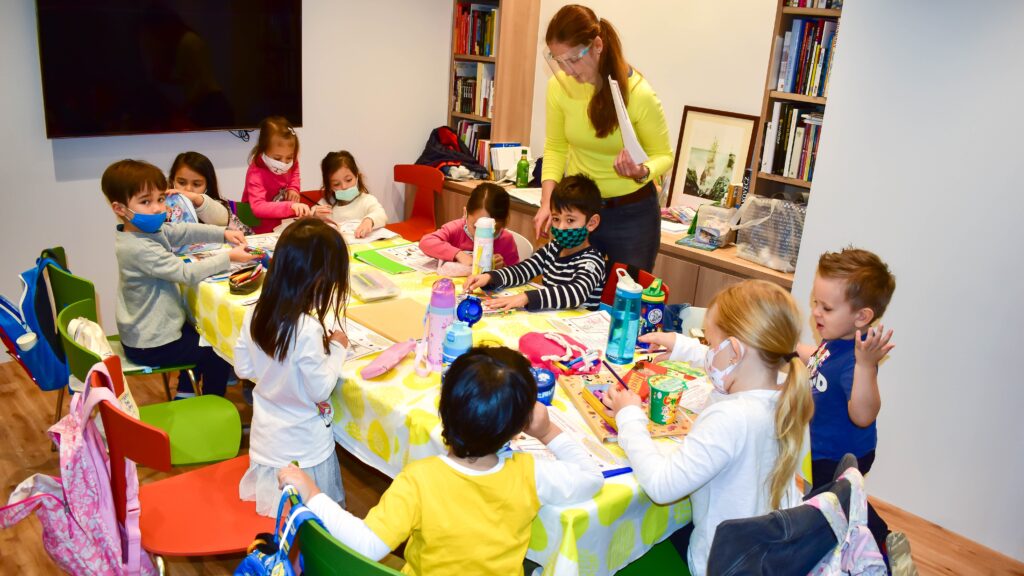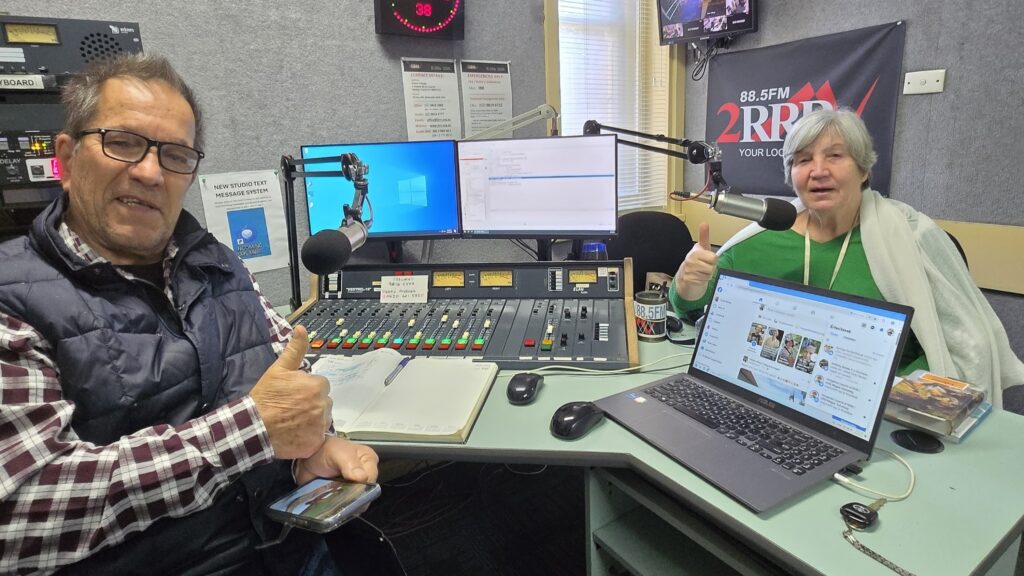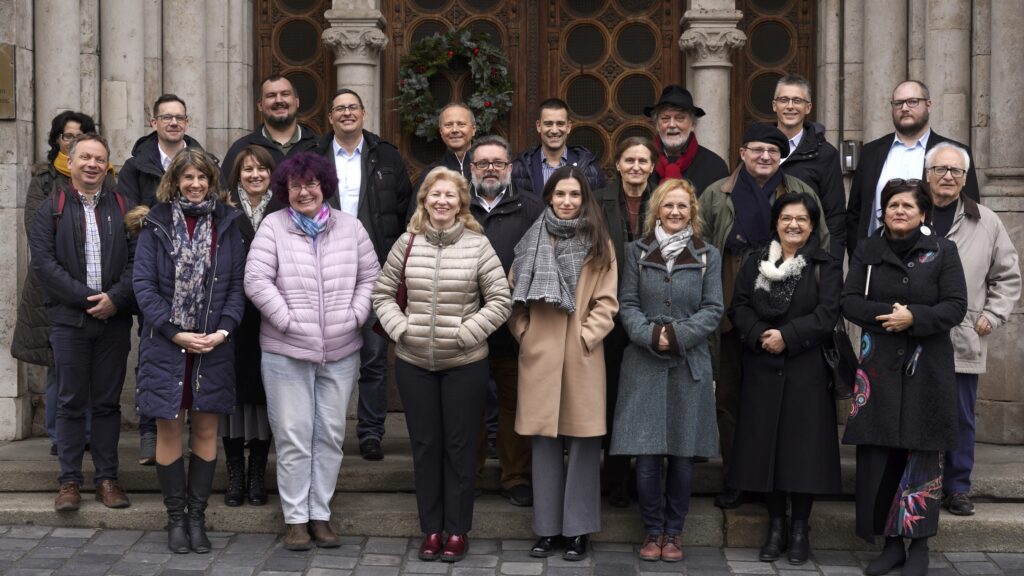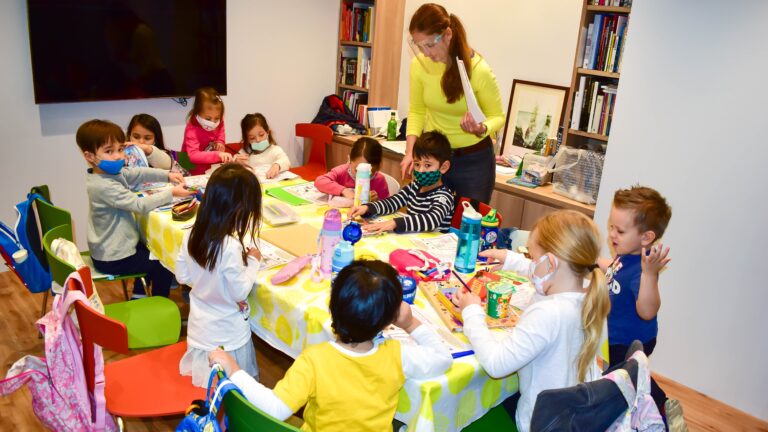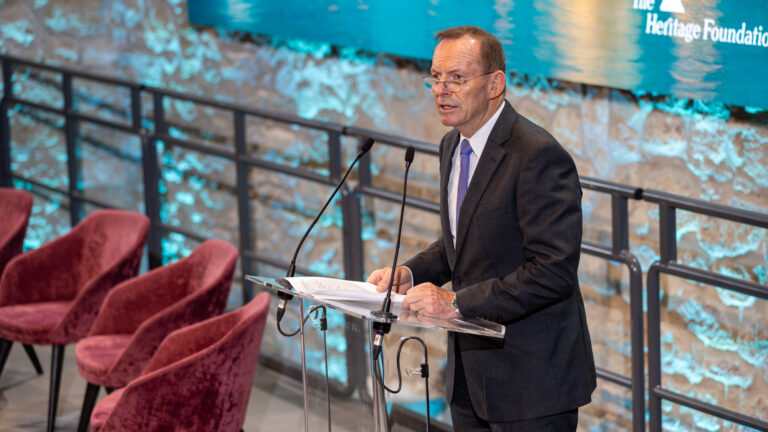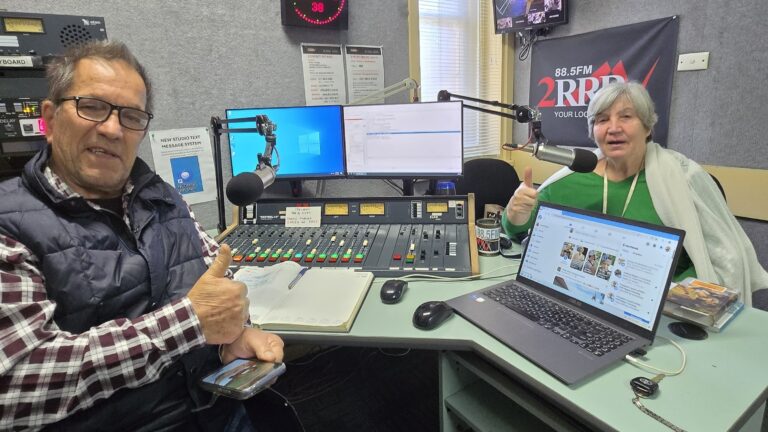Ágnes Virga came to Boston in 1987 and started to rebuild her professional life at the age of 33. Like many Hungarian immigrants with a medical education and experience, she started from the bottom as a university laboratory technician. She is now the director of the neurology department at Concord Emerson Hospital. She has recently received the Best Community Physician Award from the Massachusetts Medical Society. For 25 years, she has volunteered at numerous Hungarian organizations, supported by her American husband and three children. She is a former president of the Hungarian Society of Massachusetts, vice president of the Hungarian American Coalition (HAC), board member of the Hungarian American Medical Association, and a member of the organizing committee of the New York Piarist Ball.
***
When did you first come to America?
I first came in 1984–85 on a postdoctoral fellowship, which was a big deal at the time. In Debrecen, besides the clinical and educational responsibilities, I was doing research at the neurology and psychiatry clinic of the university hospital, having both of my board certifications. At that time these fields were not as separated as they are today: one day we treated stroke patients, the next day schizophrenics, and sometimes even neurosurgical cases. That was the experience I had before arriving in Boston, where I was only allowed to work for a year because my visa expired. In 1987, however, I was offered a job here, so I came back and I have been living in the Boston area ever since. The socialist-communist system in Hungary at that time was quite a drag on health and science, especially for people who were not members of the communist party like me. I could work but could not advance and get promoted,
my career prospects were quite limited.
Therefore, I accepted a job offer at Boston University at the age of 33. This decision was a big step backwards professionally as I already had a solid position and practice in Hungary, while in Boston I had to start working as a laboratory technician in an anatomy laboratory, dissecting and performing experiments on frozen monkey and rat brains. Like many other Hungarian immigrants with a medical background, at the outset I couldn’t work as a doctor, but started at the bottom of the medical hierarchy, and worked my way up from there.
How high did you ‘work your way up’?
When I left Hungary, I thought I spoke English well enough because I had taken a language course before, but when I arrived in Boston, I was picked up at the airport by a big black man who spoke to me kindly and nicely, but in a Boston dialect that I couldn’t understand a word of. I had colleagues of all nationalities in the laboratory, my boss, for example, was Japanese, and they all spoke different English, so it took me several months to finally understand them well. While I was working full time in the laboratory at Boston University, I was studying in the evenings and at the weekends for many months, because the medical naturalization exam in the U.S. is extremely difficult. After four years of neurology residency at the University of Massachusetts, I also worked for a year as a neuromuscular specialist. I stopped doing research and have since worked as a general neurologist at a large suburban hospital in Concord called Emerson Hospital, where I am the director of the neurology department.
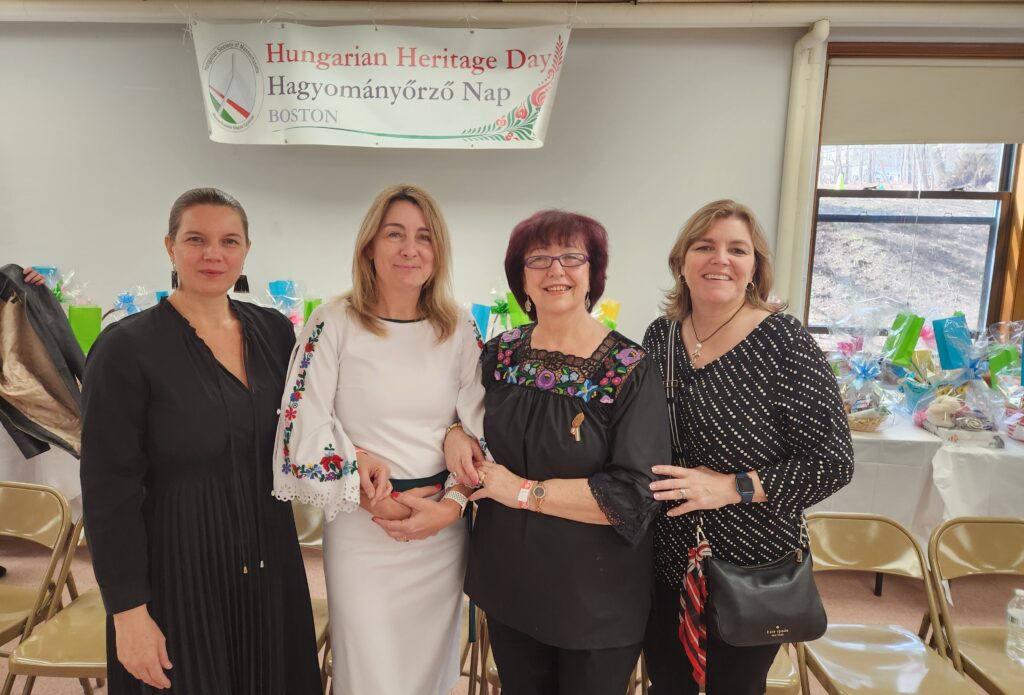
When you came to the U.S. in 1987, was it a life-changing decision?
I didn’t expect the communist regime to change in Hungary at the time; I guess very few did. I wasn’t sure I would stay here permanently, but the professional opportunities were clearly better, and then I started the residency, which I wanted to finish. I have a few doctor friends who tried to move back to Hungary after the regime change, but most of them found it quite difficult to reintegrate into the medical hierarchy there. I have a lot of respect for my colleagues in Hungary and keep in touch with them, but I have found my place here, both professionally and personally.
You started a family in the meantime…
I already had a family when I left Hungary. My first husband is a surgeon, he lives in Hungary and we are still very close. My current husband is an American lawyer. He’s been very supportive of Hungarian causes and relations, has learned a little Hungarian, and helps me with all my Hungarian activities, which is a great thing for me and the children. My son Dani works as a health informatics specialist and is married to a Hungarian girl from Eger, where they’ve bought a small house. They live very close, so if I cook a good meat soup or bake an apple pie, I bring it over to them without any prior arrangements. My older daughter, Anitra Lenke also works in healthcare as a case manager at a large hospital in Denver. Her husband is from Transylvania, whom she met here in Boston. They live in Colorado, but have recently bought a small house in Transylvania, where they often return to; we also visited them this summer. My younger daughter, Faye Noelle worked at Semmelweis University in Budapest for a while, then studied at the London School of Economics, and now works for PwC in London as a Google Cloud business manager. All three of them grew up here, went to the Hungarian weekend school Boskola, and joined the local scouts. All three speak perfect Hungarian and maintain and foster their Hungarian connections. Faye also works for the HAC in the field of business and education.
You’ve also achieved community success as a physician, as your recent award proves.
I’ve received the Best Community Physician Award from the Massachusetts Medical Society, where nominees are voted on by physicians conveying the community opinion. I was very pleased. My colleagues told me they had voted for me because I’m always available. If colleagues call me for an urgent case, I always say yes, which is very important to the primary care doctors. Whatever the emergency, I never tell them or the patients to wait or come back later because I’m busy. I do the consultations for everyone immediately, even if it means I don’t have lunchtime or I must stay in the hospital after normal working hours. The other reason was that I talk and listen to all patients and family members, and I always take the time to explain the situation to them. I’ve learned that no matter what test or treatment I prescribe for a patient, if they feel that they haven’t been able to tell me what they want, they will not be satisfied. Also, we cover several towns in the area, and I’ve given many informative, free educational lectures in libraries and even restaurants, so I’m probably more widely known than the average doctor in the Boston area.
You are also very active and thus widely known in the Hungarian community, too.
It’s been 25 years since I started getting involved in the local Hungarian organizations, when I enrolled my children in the weekend Hungarian school and scouting. I was very grateful to them, because I saw that often one parent is not enough to teach children Hungarian, they also need a community of their peers. When I experienced how useful it was, I started to actively help them. And as the years went by, I got involved in organizing more and more events, and then I joined the board of the Hungarian Society of Massachusetts, founded in 1964, serving as a board member, then vice president for a while, and as the president for six years, three terms between 2014 and 2020. Nowadays I’m no longer a board member, but I’m still involved in organizing events.
I always tried to make sure that younger and older generations were both involved, learning from each other.
When I got here, I was one of the younger active volunteers and realized how much I hadn’t known about Hungarian history, because it hadn’t been taught in communist Hungary at the time. I also realized that the new generation would know even less if we did not tell them. When organizing events of this kind, my children and many others told me that it was a great experience for them to meet people who had lived through the Hungarian revolution and freedom fight of 1956. When they read about it in a book or heard about it in the classroom, it was only distant history for them, but when they met someone who was recalling his own memories, they would always remember that experience. There were many 1956ers living in the Boston area, some of whom are still with us today. It was with their help that the huge, beautiful 1956 statue was built in 1986 in Liberty Square, which is surely the greatest and most spectacular monument to 1956 in the USA. We always celebrated the national holidays, organized many cultural performances, theatre plays and concerts, inviting artists also from Hungary. We had sporting events, balls, e.g. fundraising balls for the Hungarian school and scouts. We worked a lot and managed to keep the community together, which also had a generational break in its history. In recognition of my work, I received the Golden Cross of Merit of the Republic of Hungary in July 2021, which is a great honor for me.
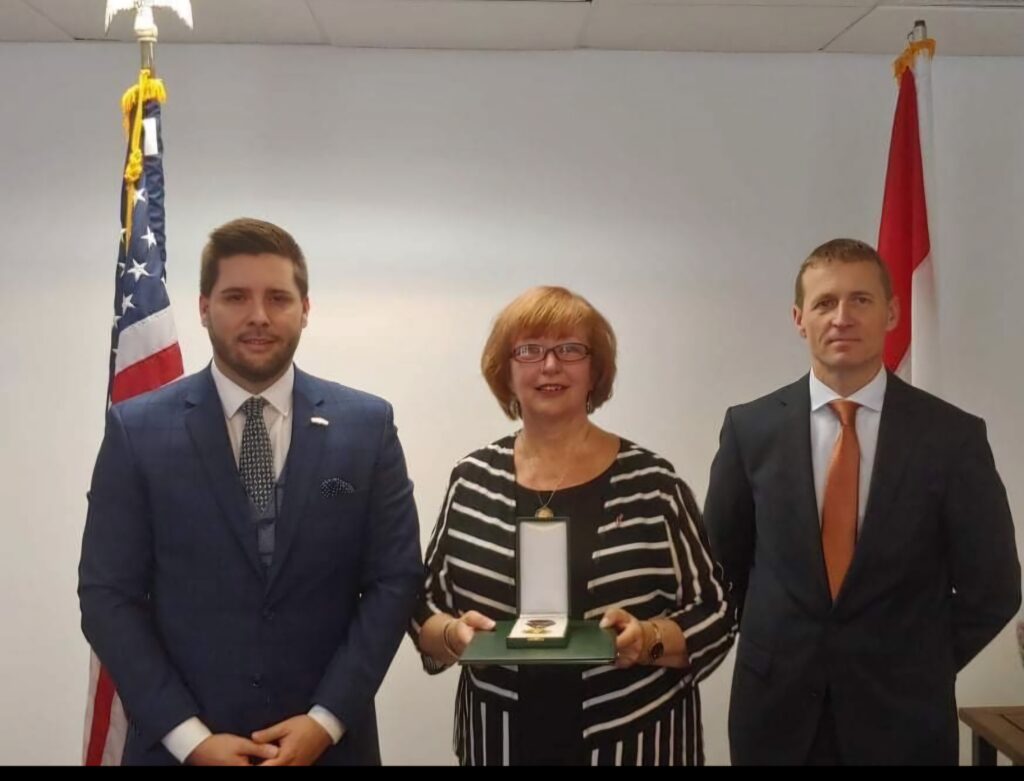
Your commitment to the Hungarian community is obvious, but why were you asked to be the president of the local Hungarian society? What skills are needed for this position?
I assume I had previously demonstrated my organizational skills. It also required a certain diplomatic flair, which I needed in my professional job as well. I had to learn in both areas that there are many different people in every community and that it is worth listening to everyone and maintaining good relations with everyone. And obviously you also need some skills to be able to speak up, to articulate messages and ideas, to advocate, to keep a community together and to inspire others, which is not always easy, because everyone is busy, both professionally and personally.
This is a challenging job, especially in the diaspora, where there are not only success stories. The survival of the Hungarian Society is clearly a bright spot, and so is the HAC, for example, of which you currently serve as its vice president. How did you get there?
The HAC was founded in 1990; it is one of the oldest and largest Hungarian umbrella organizations in the U.S., bringing together a lot of local Hungarian organizations, schools and churches. It was very impressive and inspiring for me when their first president, Edith K. Lauer visited us in Boston and explained its history and activities. I had a similar experience when later I was invited to attend their board meeting for the first time. There I realized that I could learn from them what I have been trying to make everyone understand ever since: it is possible and worthwhile to work with everyone; and you don’t have to look at who is in political power at any given moment. It is worth learning from the old organizations and to get out of every relationship what is important for your own community. That is, to focus on the commonalities and the big picture, not on the differences and the small details. This is why the HAC was able to live through multiple changes of government in the U..S and Hungary. I joined them representing the Hungarian Society of Massachusetts to learn from them. After several years of working together, I was asked to join their board. I was Chairman for three years and now I’m one of the three vice presidents, alongside Piros Pazaurek and Csilla Grauzer, while Andrea Lauer Rice is the president. I am mainly involved in community relations and support the youth initiatives as well.
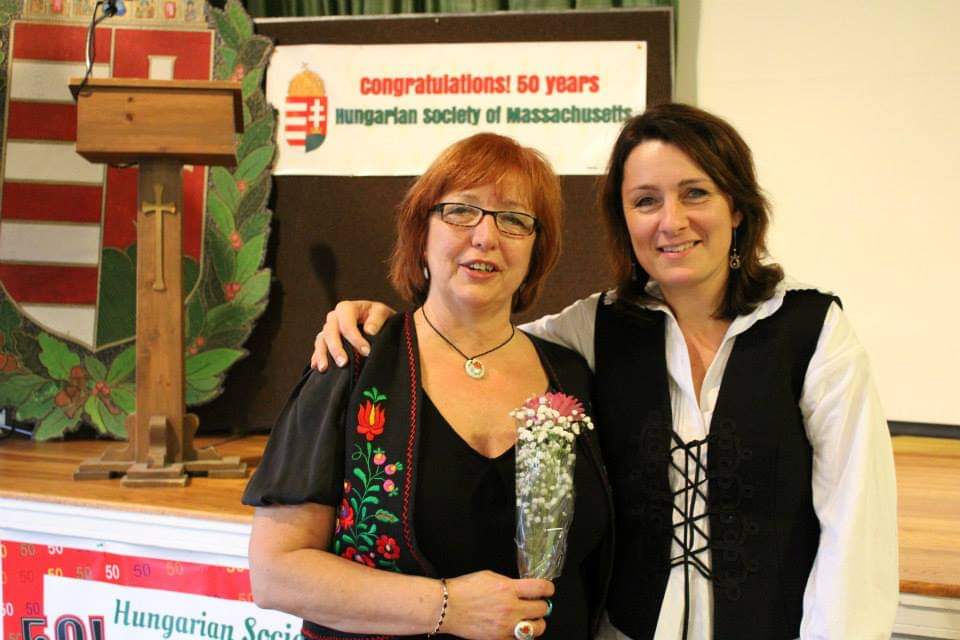
There is also a Hungarian professional organization where you are a board member…
Yes, the 55-year-old Hungarian American Medical Association (acknowledged by the American Medical Association) is a volunteer-based organization of physicians, health-related scientists, researchers, medical students, residents, and medical graduates with Hungarian roots, which aims to preserve, nurture and promote the traditions and ideals of the Hungarian medical profession in the U.S. Its main objectives are to organize scientific conferences, lectures, publications, member cooperation; to provide continuing medical education; to organize scholarship and exchange programs for Hungarian students and residents in the Carpathian Basin between medical schools in the U.S. and Hungary, and to organize professional cooperation between professionals from U.S. and Hungarian universities. Its New England Chapter, of which I’m a board member, provides a forum for local medical professionals from the membership to present, meet and collaborate. We pride ourselves on having tremendous professional connections and have already had two Nobel Prize-winning Hungarians lecture here. Soon we will hold our annual meeting in Sarasota, Florida, where renowned Hungarian physicians from all over the world will come to contribute to our support of talented young Hungarian physicians and researchers. We believe that not only political, but also scientific and economic relations between the two countries are important, and that they should be constantly developed. We also have regular regional meetings every two or three months, where everyone reports on their own research and we get to know each other, build contacts and think together about who to invite next time and how to help young professionals.
You have mentioned the Segítség.ma (in English: Help.today) platform created by the HungarianHub.
The most important goal of Segítség.ma is to help Hungarian patients living across the border and in the diaspora to find a native-speaking health (including mental health) professional for themselves or those around them as easily and quickly as possible. I became an ambassador for this initiative, so that I could help Hungarians in trouble, which was especially important during the Covid-pandemic, and particularly for Hungarians who speak primarily Hungarian and have difficulty navigating the American healthcare system.
We’ve last met at the New York Piarist Ball, where you even performed an opening dance.
As I said, I love organizations that help talented young people. For several centuries, the goal of the Piarists has always been to support young people with scholarships. It is an organization with such a noble and beautiful purpose, and I’m happy to contribute to its activities in any way I can.
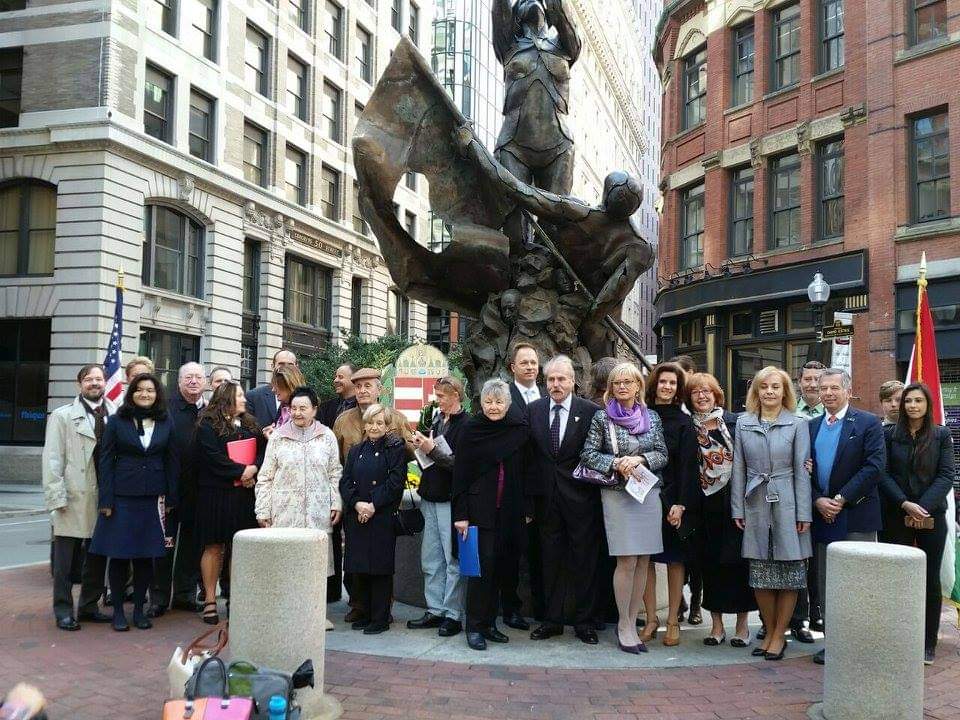
How long do you plan to work so actively? Where do you get all that energy from?
As long as I’m enjoying it. After all these years, I’m in a phase where I really enjoy my work. I don’t have to travel much because I don’t live far from the hospital and the on-call system has changed. We have teleneurology, so I don’t have to travel all the time at night or on weekends for emergencies, which I did for many years, with three children at home. I also feel that I’m well known in the local community and that many people come to see me, so my work is a success every day. If only two out of twenty patients thank me for changing their lives because, for example, they can work or because their migraines have stopped, that’s a very good feeling for me. I am also on good terms with my colleagues. My secretaries have learned how to make Hungarian espresso, for example, and when I go to the office, they wait for me with it. Of course, running the department is also an administrative task, so I rarely sit and just eat during my lunch break…
I really love my job, but the positive attitude and a sense of humor also helps.
There is joy in every job, even if you don’t have a good boss or something unpleasant happens at work. But if you can find joy in the small things in your everyday life as well as in your daily work, you can overcome the difficulties. I know it’s more of an American attitude not to complain, but if you persist in avoiding complaining, you may eventually feel that you don’t even need to…
Read more Diaspora interviews:

